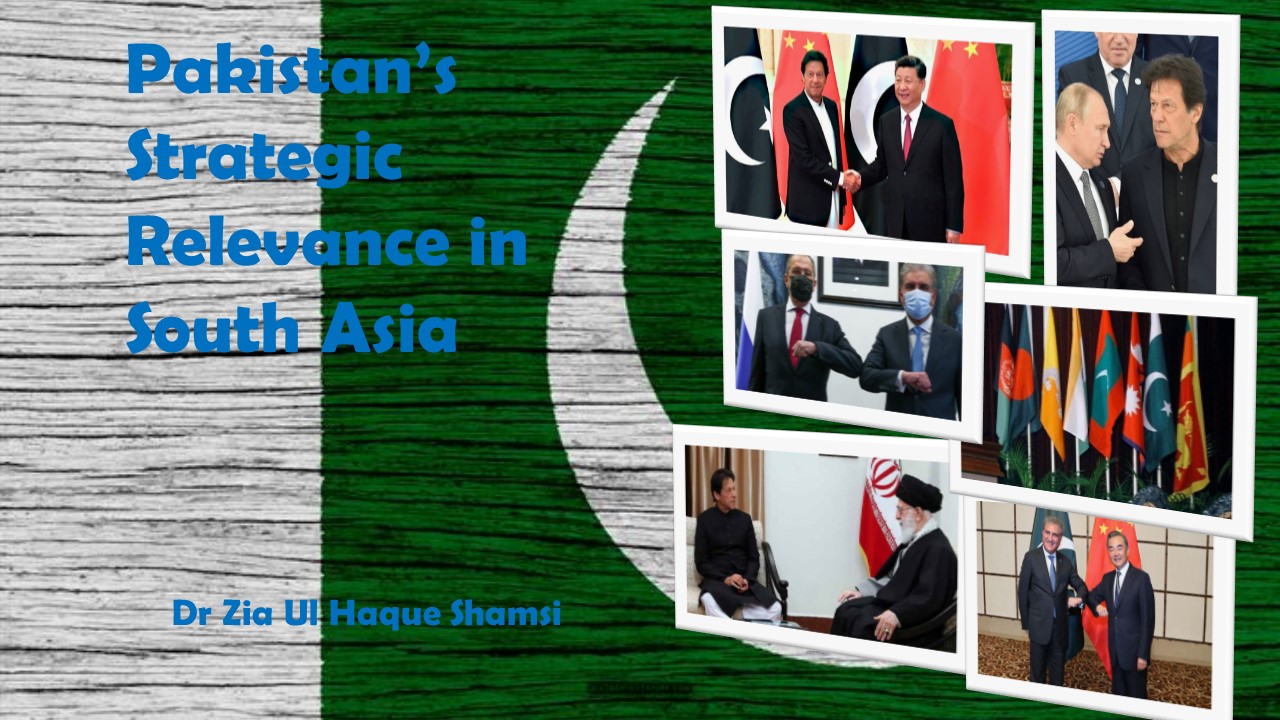Pakistan is blessed with a geographical location, which makes it an extremely important player in the entire region in general, and South Asia in particular. Pakistan’s geography, its topographical features and its access to warm waters of the Arabian Sea make it uniquely attractive to the international players of the past, present, and future. Unfortunately, successive governments in Pakistan failed to correctly visualise the importance of its geographical location. Therefore, it could not effectively sell the idea of transnational connectivity, and a cost-effective economic corridor for Russia, Afghanistan and the Central Asian States.
However, when China started its journey of development in the late 1970s under the leadership of Deng Xiaoping, it initially concentrated on the development of the “Pearl River Delta (close to Hong Kong), the Yangtze River Delta surrounding Shanghai, and the Bohai Bay region near Beijing.” But, to ensure a uniform development across its wide territory, China soon started to invest in its least-developed western regions, for which it needed access to nearby ports because the only available sea route through Malacca Straits would have taken much longer, and was not cost-effective at all. Although China managed to develop its western regions through the same route for the sustenance and initiation of One Belt One Road (OBOR), China looked towards Pakistan’s strategically located Gwadar Port on the Arabian Sea.
Pakistan responded positively to China’s OBOR initiative and signed numerous projects under the China-Pakistan Economic Corridor (CPEC), which has since then become a flagship project of the OBOR. While the selection of projects and contractual obligations under the CPEC has been hotly debated in Pakistan, one thing is for sure: Pakistan has started to make good use of its otherwise dormant strategic relevance due to its location.
Pakistan has started to make good use of its otherwise dormant strategic relevance due to its location.
The regional countries have now been invited and shown interest in joining the CPEC, while the extra-regional players have shown reservations about the increased influence of China on Pakistan’s fragile economy. The US has been critical of CPEC, primarily due to China’s presence on the strategic Gwadar Port, and threatened to sanction some Chinese entities involved in certain projects in Pakistan.
Pakistan has now started to realise that its strategic location can be best used away from geostrategic significance to geo-economic importance, and therefore, offers regional connectivity to the countries within the region and beyond. The various infrastructure projects under the CPEC, which would provide better means of communication between major cities of Pakistan, are near completion. Pakistan has started to offer the regional countries an opportunity to invest in numerous purpose-built Special Economic Zones (SEZs), being established across the country.
This article is aimed at highlighting the strategic relevance of Pakistan from the viewpoint of geo-economics, and Pakistan’s initiatives of establishing SEZs, to attract foreign investment to enhance its importance in the region as a major player. Some of the important SEZs include Rashakai Economic Zone (REZ), located near Nowshera in the province of Khyber Pakhtunkhwa (KP), which offers investments in “Garment and Textile Products, Home Building Materials, General Merchandise, Electronics and Electrical Appliances, and Automobile and Mechanical Equipment.”
Another important and largest SEZ is Allama Iqbal Industrial City (AIIC), Faisalabad-Punjab, which is Pakistan’s textile hub and offers investment opportunities for multiple businesses including automobiles, cellular technologies, pharmaceuticals, and textiles etc.
While REZ and AIIC have established a few production units, other SEZs are to be established in Islamabad, Dhabeji-Sindh, Bostan-Balochistan, Port Qasim-Sindh, Mirpur-AJK, Mohmand-erstwhile FATA now KP, and Moqpondass – in Gilgit-Baltistan (GB), are various stages of approval and developments.
Whereas the initiative to adopt a definite direction towards geo-economics is appreciable, the leadership may be mindful that the opportunity is not lost in the domestic politicisation of the concept. The national interests of Pakistan must remain supreme while deciding the projects and negotiating the conditions of investments with foreign states and entities. Moreover, the bureaucratic delays often dissuade the investors. Thus, efforts may be made to ensure the entire process is transparent and relatively free of unnecessary hurdles.
The leadership may be cognizant of the fact that Pakistan’s strategic location would continue to attract global players for the sake of geostrategic reasons, even if it decides not to side with any particular power in geopolitical contestation. Therefore, it is incumbent upon the politico-military leadership of Pakistan that it is not perceived as part or proxy of a major regional player, so that it can truly maintain its strategic relevance as a transnational corridor for all regional and extra-regional states.
The writer is a published author and presently working as Director Centre for Aerospace & Security Studies (CASS). This article was first published in Daily Times. He can be reached at [email protected].
Image Source: Etfa Khursheed





